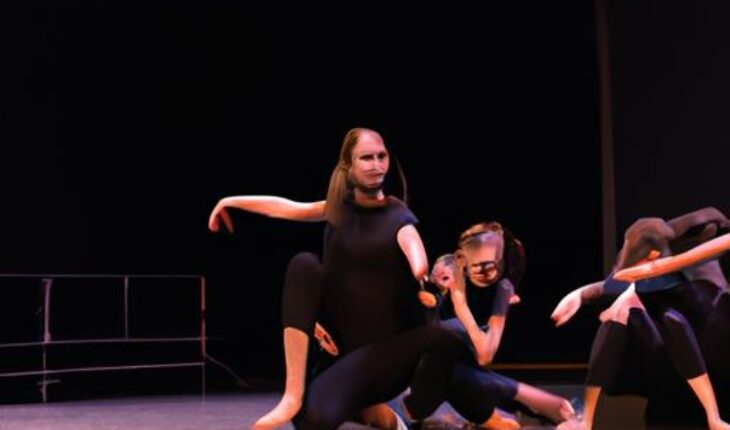Introduction
Performing arts hold a captivating allure that transcends cultural boundaries and speaks to the depths of human emotion. Have you ever wondered what lies behind the curtain of a captivating dance performance or an awe-inspiring theater production? In this article, we will delve into the realm of performing arts, exploring the various disciplines and shedding light on the question, “what do you study in performing arts?”
Definition and Overview of Performing Arts
Performing arts encompass a wide range of artistic disciplines that involve live performances before an audience. These include dance, theater, music, and more. By immersing oneself in the world of performing arts, individuals have the opportunity to unlock their creative potential and express themselves in unique and compelling ways.
Importance and Popularity of Performing Arts Education
Performing arts education plays a vital role in nurturing talents and fostering a deep appreciation for artistic expression. It provides individuals with a platform to explore their passions, develop new skills, and cultivate a love for the arts. Not only does it enhance creativity, but it also instills confidence, fosters collaboration, and encourages critical thinking.
Moreover, the popularity of performing arts education has been steadily increasing over the years. Many educational institutions now offer dedicated programs and degrees in performing arts, recognizing the value it brings to individuals and society as a whole. So, let’s embark on this journey together and uncover the fascinating world of performing arts.
Major Disciplines within Performing Arts
Performing arts encompass a diverse array of disciplines, each with its own unique characteristics and areas of focus. Let’s explore the major disciplines within the realm of performing arts and gain a deeper understanding of what they entail.
A. Dance
Dance is a captivating art form that allows individuals to express themselves through movement. Within the discipline of dance, there are various techniques and styles to explore, ranging from classical ballet to contemporary and cultural dances. Students studying dance learn the intricacies of these techniques, mastering the art of fluidity, grace, and precision. Additionally, they delve into the world of choreography, honing their skills in creating captivating dance sequences and performances. Furthermore, studying the history and cultural significance of dance helps students contextualize their art and appreciate its rich heritage.
B. Theater
Theater is a captivating blend of storytelling, acting, and stagecraft. Those studying theater immerse themselves in a world of creativity and expression. Acting techniques form a fundamental part of theater education, enabling students to develop their skills in portraying characters and evoking emotions on stage. Script analysis and interpretation allow students to delve into the depths of dramatic literature, understanding the nuances of character development and plot structure. Moreover, theater education encompasses the study of stagecraft and production, equipping students with the knowledge of set design, lighting, sound, and other technical aspects crucial to creating immersive theatrical experiences.
C. Music
Music is a universal language that has the power to evoke emotions and transcend barriers. Within the discipline of music, students explore the realms of vocal training and techniques, honing their singing abilities and discovering their unique voices. Instrumental skills and theory are also vital components of music education, allowing students to master various instruments and understand the intricacies of musical composition. Furthermore, studying music history and appreciation provides students with a broader perspective on different genres and styles, fostering a deeper appreciation for the rich tapestry of musical expression.
By studying these major disciplines within performing arts, individuals can unlock their creative potential, develop their skills, and gain a deeper understanding of the art forms that have captivated audiences for centuries.
Career Opportunities in Performing Arts
The world of performing arts offers a myriad of exciting career paths for those with a passion for artistic expression. Whether you aspire to take center stage or work behind the scenes, there are numerous opportunities to showcase your talents and contribute to the enchanting realm of performing arts.
A. Performing Arts Professions
-
Professional Dancer: If you have a flair for movement and a deep love for dance, a career as a professional dancer awaits you. From classical ballet to contemporary styles, dancers captivate audiences with their grace, precision, and storytelling abilities.
-
Actor/Actress: Stepping into the shoes of diverse characters, actors and actresses breathe life into scripts, transporting audiences to different worlds and evoking a myriad of emotions. Through their craft, they have the power to inspire, entertain, and provoke thought.
-
Musician: Musicians possess the gift of creating melodies that resonate with our souls. Whether as instrumentalists or vocalists, they bring forth the magic of music, enchanting listeners with their skill, passion, and ability to convey emotions through sound.
B. Behind-the-Scenes Roles
-
Director: Behind every successful production lies the guiding hand of a director. They shape the vision, oversee the creative process, and bring together various elements to create a cohesive and captivating performance.
-
Choreographer: Choreographers use their expertise in movement and dance to craft intricate and compelling routines. They collaborate with dancers, translating emotions into fluid motions and creating visually stunning performances.
-
Stage Manager: The unsung heroes of the performing arts, stage managers ensure the smooth execution of a production. They coordinate backstage activities, manage technical aspects, and ensure that everything runs seamlessly during performances.
In the world of performing arts, the opportunities are vast and diverse. Whether you dream of commanding the spotlight or working behind the scenes, a career in performing arts can be both rewarding and fulfilling. So, embrace your passion, hone your skills, and let your artistic journey unfold.
